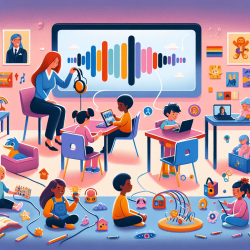Introduction to Virtual Therapy in Schools
As we continue to navigate the complexities of the modern educational landscape, one innovative solution stands out: virtual therapy. This emerging field is revolutionizing how schools provide essential services, particularly in mental health and speech therapy for autism. As a Special Education Director, I have witnessed firsthand the transformative power of these services, and I believe government health regulators should be curious about their potential impact.
The Benefits of Virtual Therapy
Virtual therapy offers numerous advantages over traditional in-person methods. These include:
- Accessibility: Students in remote or underserved areas can now access high-quality therapy services without the need for travel.
- Flexibility: Online sessions can be scheduled at times that are convenient for both students and therapists, reducing absenteeism and maximizing engagement.
- Cost-effectiveness: Virtual therapy can be more affordable than in-person services, as it eliminates travel costs and allows therapists to serve multiple schools without geographical constraints.
Virtual Speech Therapy for Autism
One of the most promising applications of virtual therapy is in the realm of speech therapy for autism. Through innovative online platforms, students with autism can receive personalized speech therapy that is tailored to their unique needs. These platforms often incorporate interactive tools and games that make learning engaging and effective.
Moreover, virtual therapy provides a comfortable environment for students who may feel overwhelmed in traditional settings. By participating in therapy from the familiarity of their own home or school, students are more likely to engage and progress in their speech development.
Mental Health Support Through Virtual Platforms
Mental health is another critical area where virtual therapy is making a significant impact. With the rising demand for mental health services in schools, virtual therapy platforms are stepping up to fill the gap. These platforms offer a range of services, from counseling and behavioral therapy to crisis intervention, all delivered by licensed professionals.
Virtual mental health services can be particularly beneficial in addressing the stigma associated with seeking help. By offering a private and discreet way to access therapy, students are more likely to seek the support they need.
The Role of Government Health Regulators
As government health regulators, there is a pressing need to explore and support the integration of virtual therapy in schools. By setting standards and providing funding for these services, regulators can ensure that all students have access to the support they need to thrive.
Moreover, by endorsing virtual therapy, regulators can help bridge the gap between demand and supply, addressing therapist staffing shortages and ensuring legal compliance across the board.
Conclusion: Taking the Next Step
The time has come for government health regulators to take a closer look at virtual therapy and its potential to transform school-based services. By supporting and promoting these innovative solutions, we can ensure that every student has the opportunity to succeed, regardless of their location or circumstances.










